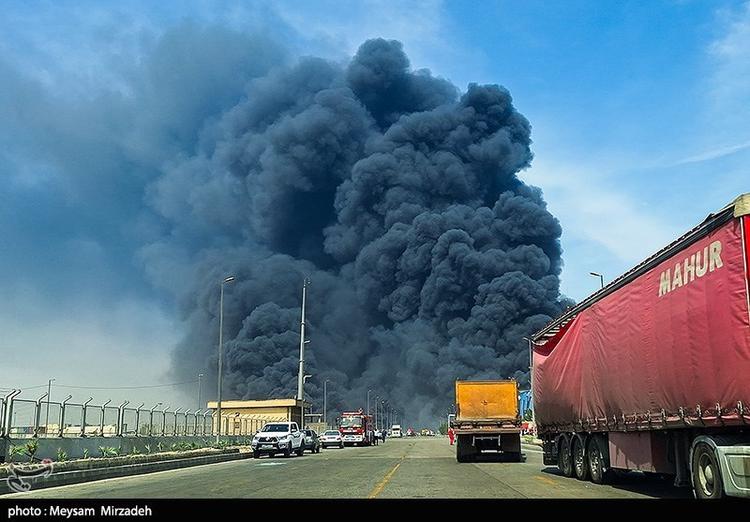May 12, 2025
Ibrahim
Al-Marashi
Iran,
Israel, the US, Russia, and China are interconnected by rumors of cyberattacks
and sabotage

Explosion at Bandar Abbas 4/26/2025. Via Tasnim News. Licensed under a Creative Commons Attribution 4.0 International License.
As negotiations
between Iran and the United States entered a critical third round, an
unexpected disaster struck one of Iran’s most vital logistical arteries. Shahid
Rajaee Port, located in Bandar Abbas along the strategic Strait of Hormuz, was
rocked by a series of explosions earlier this week, leaving nearly 40 people
dead and injuring more than 2,000 others.
The incident
has reignited speculation about external sabotage, as the explosion targeted a
facility crucial for Iran’s commercial, fuel, and military operations — at a
time when geopolitical tensions are once again peaking.
Some in the
Iranian state may attribute the explosion to an Israeli sabotage operation, as
Netanyahu has repeatedly expressed his opposition to any potential agreement between
Iran and the United States and could actively seek to undermine the negotiation
process. It will be difficult for elites in the Islamic Republic to view this
event as a mere accident, given the Port was once targeted by an alleged
Israeli cyberattack in 2020 in retaliation for an alleged Iranian cyberattack
on Israel’s water distribution system, and a cyber attack hit Iran Sunday, just
a day after the port explosion.
Given the
strategic importance of Shahid Rajaee Port for Iran’s foreign trade, energy
exports, and military operations, it highlights how regional and international
developments are deeply interconnected, and how past sabotage operations in
Iran can cast long shadows over diplomatic efforts in Oman.
Initial
Speculations and Official Denials
Iran has reason
to be wary of Israel infiltrating its infrastructure. The most famous case was
Stuxnet, the world’s first digital weapon, when Israel was able to destroy
parts of Iran’s Natanz nuclear facility in 2010 with a malicious digital code
known as Stuxnet. This code on a USB drive caused nuclear centrifuges to
accelerate to the point that they destroyed themselves.
Iran also has reasons
to believe its oil and gas infrastructure might have been sabotaged given past
precedents. Around 2017 to 2018, the
al-Ahwaz National Resistance, an umbrella movement for Arab separatist groups,
had sabotage of Iran’s pipeline facilities, usually at night. They have been
inactive, and the greatest ethnic group to threaten the Islamic Republic are
Baluch separatists operating in the far east of Iran.

No comments:
Post a Comment